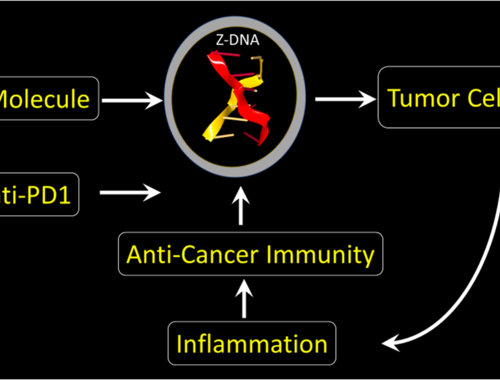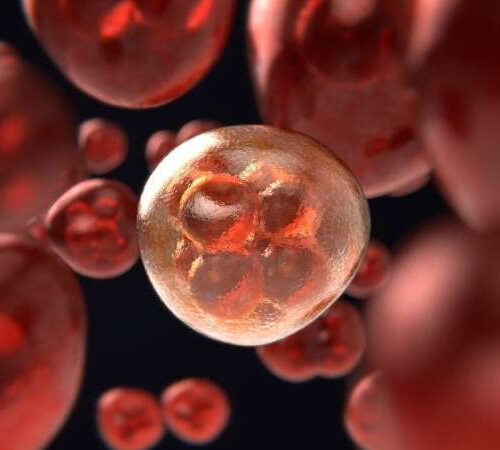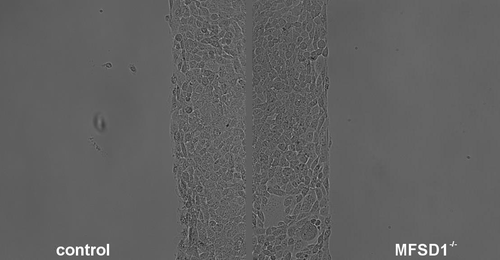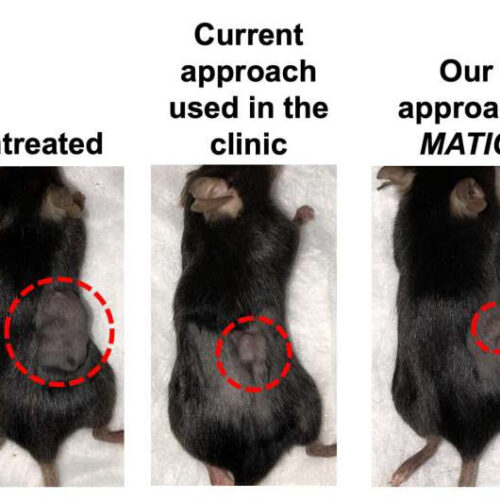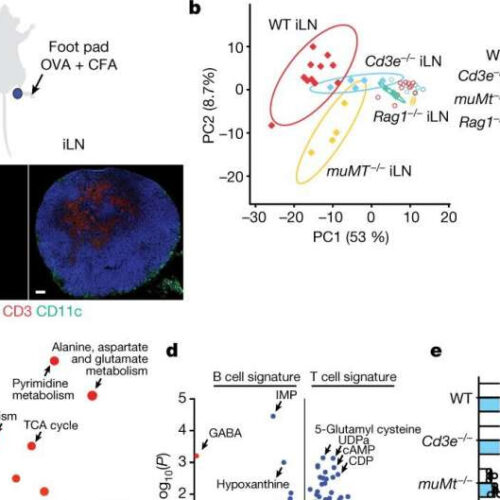One of the reasons that cancer is notoriously difficult to treat is that it can look very different for each patient. As a result, most targeted therapies only work for a fraction of cancer patients. In many cases, patients will have tumors with no known markers that can be targeted, creating an incredible challenge in...
Tag: <span>tumors</span>
Killing cancers with Z-DNA: A new approach to treating therapy resistant tumors that targets a very-specific cell-death pathway
INSIDEOUTBIO IMAGE: A SMALL MOLECULE INDUCES Z-DNA FORMATION IN TUMORS TO ACTIVATE AN INFLAMMATORY CELL-DEATH PATHWAY THAT IS EXPRESSED IN THE CELLS SUPPORTING GROWTH OF THE CANCER CELL. THE RESULTING IMMUNE RESPONSE IS SPECIFIC FOR THE MUTANT PROTEINS EXPRESSED BY CANCER CELLS. TUMOR KILLING IS FURTHER ENHANCED BY INFUSING AN ANTI-PD-1 ANTIBODY THAT NEUTRALIZES THE...
Cancer: Two drugs may target advanced tumors successfully
Two drugs may help treat advanced tumors, new research finds. luchschen/Getty Images Researchers have found two drugs to be safe and effective in treating individuals with advanced solid tumors. These medications, ATR inhibitor elimusertib and PARP inhibitor AZD5305, can block key mediators behind DNA damage response (DDR). In clinical studies, these drugs only induced “reversible...
Tumors partially destroyed with sound don’t come back
UNIVERSITY OF MICHIGAN Noninvasive sound technology developed at the University of Michigan breaks down liver tumors in rats, kills cancer cells and spurs the immune system to prevent further spread—an advance that could lead to improved cancer outcomes in humans. By destroying only 50% to 75% of liver tumor volume, the rats’ immune systems were...
Natural antibodies found in tumors could point the way toward improved immunotherapy
by Weizmann Institute of Science Credit: Pixabay/CC0 Public Domain Immunotherapies for cancer rely on recruiting the patient’s immune system, but they still fall far short of tapping into the entire arsenal of the body’s natural defenses. In fact, most such therapies draw on one type of immune defense: the ability of T cells to battle...
“Drug factory” beads implanted in mice take out tumors within a week
By Nick Lavars March 02, 2022 Bioengineer Omid Veiseh with bead-like anti-cancer implants developed at Rice University Jeff Fitlow/Rice University Among the many challenges in treating tumors is the difficulty in getting anti-cancer drugs to the right locations, and in the right amounts. A new type of implant developed at Rice University tackles both these...
Suppressing the spread of tumors
INSTITUTE OF SCIENCE AND TECHNOLOGY AUSTRIA VIDEO: IN CANCER CELLS, HIGH LEVELS OF THE PROTEIN MFSD1 MAKE IT HARDER FOR THEM TO MIGRATE TO OTHER PARTS OF THE BODY. CREDIT: © ISTA/MARKO ROBLEK Why some patients develop metastases and others do not is largely unclear. Researchers around ISTA professor Daria Siekhaus are now contributing to...
Tumors dramatically shrink with new approach to cell therapy
by Northwestern University Mice treated with novel approach to cell therapy saw dramatic shrinkage in tumors compared to those treated with traditional cell therapy approaches. Credit: Please credit Shana Kelley Lab / Northwestern University Northwestern University scientists have developed a new tool to harness immune cells from tumors to fight cancer rapidly and effectively. Their...
GABA released by B-cells blunts the immune response to tumors
by RIKEN Fig. 1: Metabolic remodeling of immunized LNs and B cell-dependent GABA production. a–e, Mice were injected in the foot pad with OVA + CFA, and iLNs and cLNs were collected for metabolite MS and histology at day 7: WT (n = 11), Cd3–/– (n = 5), muMt–/– (n = 4) and Rag1–/– (n = 3). a, Immunohistochemistry of B cells (B220), T cells (CD3)...
How diet affects tumors
CAMBRIDGE, MA — In recent years, there has been some evidence that dietary interventions can help to slow the growth of tumors. A new study from MIT, which analyzed two different diets in mice, reveals how those diets affect cancer cells, and offers an explanation for why restricting calories may slow tumor growth. The study...

